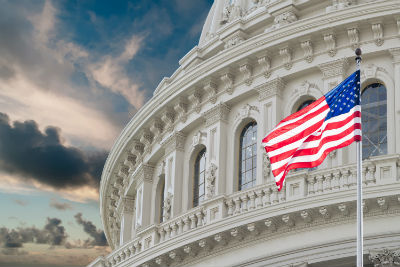
Rep. Don Beyer has introduced legislation that would incentivize non-residential building owners to conduct indoor air quality assessments and upgrade their ventilation and air filtration systems.
The introduction of the Airborne Act followed a sharp uptick in workers returning to in-person work in April, according to the Bureau of Labor Statistics.
“Improving indoor air quality reduces the risk of COVID-19 transmission, but it also can benefit employers and workers by reducing sick days, creating a cleaner and more comfortable work environment, and lessening the risk of long-term health conditions,” said Rep. Beyer (D-VA-08). “The COVID-19 pandemic has illustrated the dangers of airborne respiratory diseases and the importance of adequate indoor ventilation and indoor air quality, but the improved HVAC and air filtration systems necessary to improve air quality can be expensive to install and maintain. Our bill would use the tax code to give building owners incentives to perform IAQ inspections and upgrades, which would make our make workplaces safer from both the threat of Covid and future airborne disease outbreaks.”
The Airborne Act is supported by the American Society of Heating, Refrigerating and Air-Conditioning Engineers.
“As the pandemic has shown us, buildings play an important role in providing healthy environments in which to live, work and play. This includes protecting us from risk of infection from exposure to infectious aerosols like influenza and the virus that causes COVID-19,” said Jeff Littleton, Executive Vice President of ASHRAE. “ASHRAE is pleased that elected officials like Congressman Beyer are recognizing the importance of buildings to occupants’ health and wellbeing, and we appreciate that technical comments from ASHRAE’s Epidemic Task Force were incorporated into this legislation. We hope that this legislation will help building owners and managers make the needed evaluations and investments to upgrade building systems and their operation and maintenance to improve health outcomes, increase productivity and learning capacity.”
The Airborne Act would:
- Incentivize commercial building owners to conduct IAQ assessments of their properties by providing them with a $1 per square foot tax credit, not to exceed the cost of conducting the assessment.
- Incentivize commercial building owners to upgrade their HVAC/air filter systems to reach the American Society of Heating, Refrigerating, and Air-Conditioning Engineers (ASHRAE) Standard 62.1-2019 and a Minimum Efficiency Reporting Value (MERV) rating of 13 or better for their properties. This standard mirrors ASHRAE’s Epidemic Task Force Recommendations from October 2021 to reduce the spread of respiratory diseases like COVID-19. The tax credit for upgrades is equal to $5 per square foot of property affected for air filters, and $50 per square foot for HVAC systems and is limited to 50 percent of the total project cost.
- Create a Department of Energy & Environmental Protection Agency voluntary certification program for property owners to certify that their properties are in compliance with the IAQ standards outlined above.
Eligible recipients also include non-profits and for certain public properties, the credit is transferable to the appropriate private entity carrying out the upgrade.
Full text of the Airborne Act is available here.










